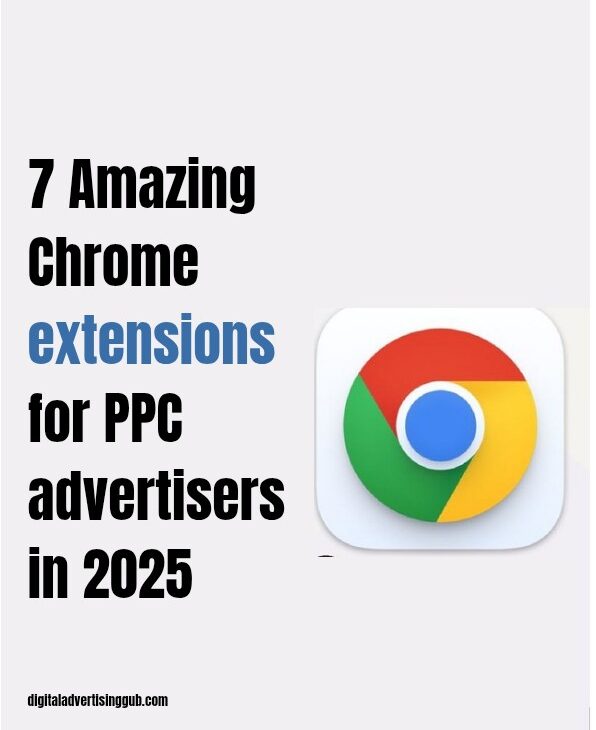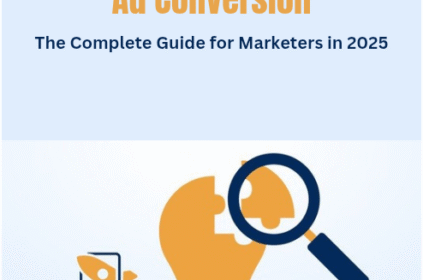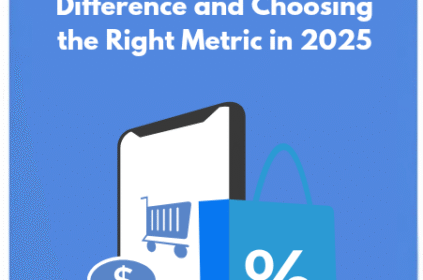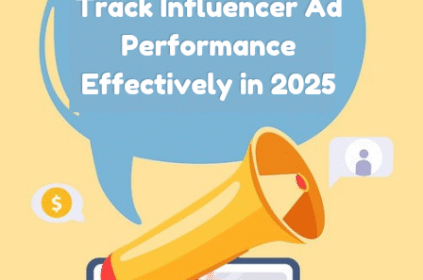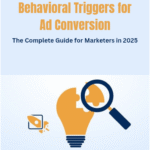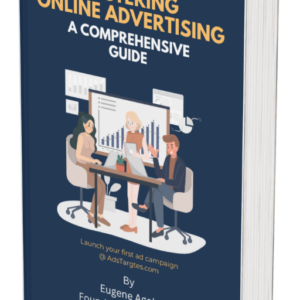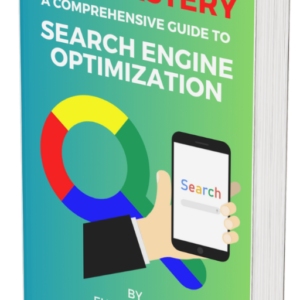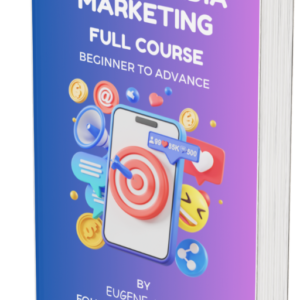When it comes to pay-per-click advertising, every second saved and every insight gained can mean the difference between a winning campaign and wasted ad spend.
That’s why smart advertisers are turning to the best Chrome extensions for PPC advertisers in 2025.
These lightweight yet powerful tools simplify everything from keyword research and competitor analysis to campaign tracking and reporting—so you can spend less time on manual tasks and more time optimizing for profit.
Whether you’re running Google Ads, Microsoft Ads, or scaling across multiple platforms, the right extensions can supercharge your workflow and give you an unbeatable edge.
Why Chrome Extensions Are Essential for PPC Advertisers in 2025

Running high-performing pay-per-click campaigns today is more complex than ever.
With multiple platforms, ever-changing algorithms, privacy-first tracking, and budget pressure from finance teams, advertisers need every possible edge to stay ahead.
While ad platforms themselves offer native dashboards and insights, the reality is that these tools don’t cover every angle of optimization.
This is where Chrome extensions for PPC advertisers make a real difference.
Extensions can bridge the gap between campaign data and everyday workflows. They streamline research, flag wasted spend, support bulk edits, and provide quicker visibility into performance data without requiring you to dive deep into platform dashboards every hour.
What makes them powerful in 2025 is how they’ve adapted to newer challenges like cookieless tracking, audience segmentation shifts, AI-powered ad recommendations, and stricter quality-score rules.
Another factor is speed. Campaign managers know how time-sensitive PPC optimization can be.
When your competitor launches a new ad or captures seasonal demand spikes, you can’t afford to be buried in spreadsheets.
Chrome extensions work directly in your browser, allowing you to react faster to changes. According to WordStream, over 65% of advertisers report they make bid or targeting adjustments daily.
With the right tools integrated into the browser, those decisions become more accurate and less error-prone.
Most importantly, advertisers face budget scrutiny in 2025. Marketing spend is being measured against ROI benchmarks more than ever, with eMarketer projecting that paid search and display together will account for more than $300 billion in ad spend globally this year.
That volume of spend means mistakes are costly, and opportunities missed can translate into millions in lost revenue.
Chrome extensions for PPC advertisers are not just convenient add-ons—they’re critical to reducing inefficiency and ensuring campaigns stay competitive.
#1. Keywords Everywhere
When it comes to keyword research, even small shifts in trends can impact your ad performance.
Keywords Everywhere has been a staple for years, but its 2025 version integrates even deeper with Google Ads, Microsoft Ads, and YouTube.
By showing volume, CPC, and competition scores directly in search results, advertisers can quickly validate keyword choices without toggling between multiple tools.
This extension is particularly valuable because it provides data right where you need it—in your browser—cutting down the time needed to evaluate whether a keyword is worth adding to your campaigns.
For PPC, where cost-per-click data can fluctuate daily, this visibility helps advertisers make informed decisions before investing budget.
It also supports competitive research. By seeing what terms competitors are ranking or bidding for organically, you can identify gaps in your strategy.
According to SEMrush’s advertising report, advertisers that regularly refresh their keyword lists see up to a 20% higher return on ad spend.
With extensions like Keywords Everywhere, that refresh process becomes faster and more data-driven.
For PPC advertisers, the integration of this tool into the browser eliminates manual copy-paste cycles and accelerates campaign creation.
Out of all Chrome extensions for PPC advertisers, it remains one of the most practical because it addresses both cost control and audience targeting precision.
#2. PPC Negative Keyword Tool
Negative keywords remain one of the most underutilized strategies in PPC management, yet they are critical for cutting wasted spend.
The PPC Negative Keyword Tool Chrome extension automates the process of spotting irrelevant queries that trigger your ads.
Advertisers often find their campaigns wasting budget on clicks from users who were never potential buyers in the first place.
For example, someone searching for “free software” is unlikely to convert if you’re running ads for enterprise solutions.
Without proper exclusion, this irrelevant traffic erodes ROI. This extension highlights search terms that should be excluded and allows you to export them directly into your campaigns.
The impact is significant. Google itself states that using negative keywords can improve quality scores and lower CPC by reducing wasted impressions.
For PPC managers running large-scale campaigns across multiple accounts, this extension is a must-have.
It not only simplifies identification but also prevents oversight, ensuring your ads only show up for queries that actually matter.
Among all Chrome extensions for PPC advertisers, this one directly affects profitability by ensuring every click has intent.
#3. AdStage Ad Performance Tracker
Cross-platform reporting has long been a challenge in PPC. Advertisers running Google Ads, Meta Ads, LinkedIn Ads, and Microsoft Ads campaigns often juggle multiple dashboards.
The AdStage Ad Performance Tracker extension solves this by aggregating campaign insights into a single view within your browser.
This matters because fragmented reporting slows down optimization.
For example, if you’re monitoring daily budgets across three different platforms, switching between tabs and exporting CSVs is inefficient.
This extension provides real-time spend, clicks, and conversions data without leaving your workflow.

In 2025, speed of decision-making defines performance.
Extensions like this allow you to act in real time, pausing underperforming ads or reallocating budget on the fly.
The AdStage tracker also integrates predictive insights powered by AI, helping advertisers forecast campaign performance over the next seven days based on historical trends.
For PPC managers overseeing multiple clients or large budgets, this is a game-changer. It makes it one of the most valuable Chrome extensions for PPC advertisers in 2025, particularly for those working in fast-moving industries like eCommerce and SaaS.
#4. Tag Assistant Companion
Tracking is the foundation of PPC performance. If your tags are misfiring, you’ll make optimization decisions based on incomplete or inaccurate data.
Tag Assistant Companion by Google ensures that your conversion and remarketing tags are firing correctly on every page.
The importance of tracking has only grown with privacy shifts and third-party cookie deprecation. Inaccurate data leads to wasted ad spend because you can’t properly attribute conversions or measure campaign effectiveness.
This extension highlights errors, duplicates, or missing tags in real time.
For example, if a purchase pixel fails to fire, you may think an ad is underperforming when in reality, it drove sales that were never captured.
With Tag Assistant Companion, you can prevent those losses. For PPC managers, ensuring tracking accuracy is non-negotiable.
Out of all Chrome extensions for PPC advertisers, this one provides the foundation for every other optimization. Without reliable data, even the best campaign strategy collapses.
#5. Loom
Communication is often overlooked in PPC, but it’s essential for maintaining trust with stakeholders.
Loom, a video recording extension, has become a staple for PPC advertisers in 2025 because it allows them to record quick walkthroughs of campaign performance, optimizations, or issues and share them instantly with clients or team members.
Instead of long email reports filled with screenshots, advertisers can explain results and recommendations in a 5-minute video.
This not only saves time but also builds transparency. Clients appreciate seeing exactly what’s happening in their accounts without needing to interpret complex dashboards.
Loom also speeds up internal collaboration. PPC teams can share insights across time zones without waiting for meetings.
While Loom isn’t built solely for PPC, it has become indispensable in the advertiser’s toolkit.
As budgets grow and clients demand visibility, having clear communication can be as critical as optimization itself.
That’s why it earns a spot among the most effective Chrome extensions for PPC advertisers today.
#6. Grammarly
Ad copy is one of the most direct levers for improving CTR and quality score. Even small mistakes or unclear phrasing can reduce engagement.
Grammarly’s Chrome extension ensures that ad copy, landing page content, and client communication are error-free and persuasive.
In PPC, where character limits are tight, every word matters. Grammarly helps refine messaging to ensure clarity and compliance with platform policies.
Its tone detection feature also ensures that copy aligns with brand guidelines, which is critical when running campaigns across different audiences and industries.
By eliminating errors and enhancing phrasing, Grammarly contributes directly to higher performance.
It’s easy to underestimate the role of writing tools in PPC, but when you consider how copy influences quality score and cost per click, the value becomes obvious.
Among Chrome extensions for PPC advertisers, Grammarly isn’t about data—it’s about maximizing impact through language.
#7. Hunter
Beyond managing ads, PPC managers often need to conduct outreach—whether to secure placements, pitch remarketing partnerships, or build publisher relationships.
Hunter’s Chrome extension helps by finding verified email addresses linked to websites you visit.
This is particularly useful when building collaborations for display campaigns or negotiating private marketplace deals.
Instead of manually searching LinkedIn or contact pages, advertisers can get instant contact details.
Efficiency in prospecting means faster deal-making and more time focused on optimization.

Having direct contact with publishers or partners ensures you secure premium inventory before competitors do.
Hunter may not be a traditional PPC optimization tool, but it extends your capabilities beyond platform dashboards.
That’s why it belongs on any list of Chrome extensions for PPC advertisers—it supports the business development side of paid media.
Conclusion
The landscape of PPC in 2025 is defined by precision, speed, and accountability.
With rising budgets and scrutiny from stakeholders, advertisers can no longer afford inefficient workflows or incomplete data.
Chrome extensions for PPC advertisers provide an accessible yet powerful way to meet these demands.
From keyword research to tracking accuracy, cross-platform reporting, and client communication, each extension adds a layer of efficiency that compounds into stronger ROI.
The most successful advertisers this year will be those who combine strategic thinking with tactical execution, leveraging tools that make them faster and more effective.
The seven extensions covered here—Keywords Everywhere, PPC Negative Keyword Tool, AdStage Ad Performance Tracker, Tag Assistant Companion, Loom, Grammarly, and Hunter—cover every critical aspect of PPC management.
Together, they reduce wasted spend, improve collaboration, ensure data accuracy, and strengthen campaign performance.
As paid advertising grows more competitive, the difference between average and exceptional results will come down to details.
With the right Chrome extensions for PPC advertisers, you gain the edge needed to not just compete but lead in 2025.

